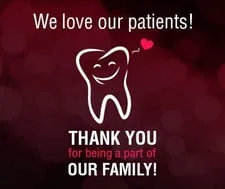My Blog
Fremont Dentist Encourages Reviews for Dental Practice
- posted: Apr. 10, 2014
It’s safe to say you probably have an electronic device on you—in your purse, back pocket or hand. We are a connected society, and we love getting online to search Read More
Fremont Cosmetic Dentistry: Zoom 2 a Whiter Smile!
- posted: Jan. 14, 2014
The Zoom whitening products you find at a dentist office leave over-the-counter whitening solutions in the dust, no contest. That’s why patients need to see a dentist to get a Read More
Dental Problems Don't Stump Fremont Dentist
- posted: Nov. 11, 2013
Dental problems affect many Americans, and some patients don’t know what to do when tooth issues arise. Dr. Sakhrani has answers for some of patients’ common dental questions. Over-the-counter whitening products Read More
Welcome to Our Blog
- posted: Mar. 19, 2013
Welcome to the Blog of Mission Hills Family Dentistry Inc. Whether you are an existing patient or searching for a dentist in the Fremont, CA area, we’re excited you are here. Read More
This website includes materials that are protected by copyright, or other proprietary rights. Transmission or reproduction of protected items beyond that allowed by fair use, as defined in the copyright laws, requires the written permission of the copyright owners.





